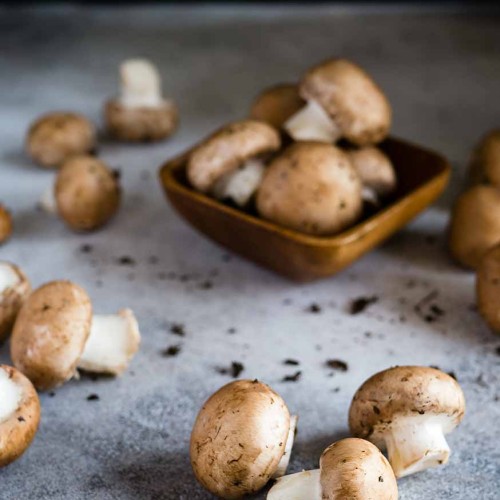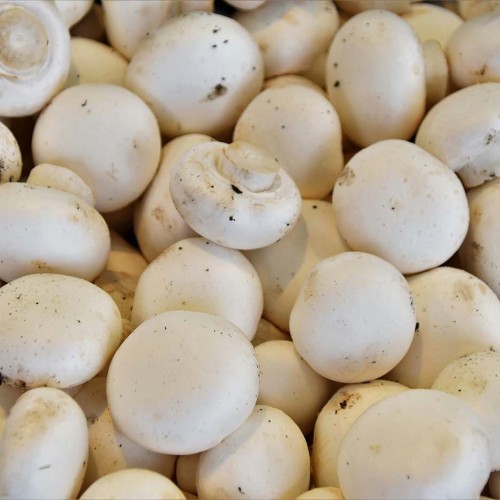Mushrooms: Vegetable of the Year 2025
A unique gift from nature
Celebrated as the Vegetable of the Year 2025, mushrooms are much more than a culinary favourite — they are a nutritional powerhouse. As edible fungi, mushrooms offer an exceptional blend of essential nutrients, health benefits, and versatility in the kitchen.
Nutritional highlights
- An 80g serving of mushrooms provides:
- Only 6 kcal / 23 kJ
- 0.8g protein
- 0.2g fat
- 0.2g carbohydrates
- 0.6g fibre
- 302 mg potassium
- 32 mcg folate
Low in calories and rich in potassium, fibre, and vitamin D (when exposed to sunlight), mushrooms are an ideal choice for a balanced and healthy diet.
Key health benefits
- Natural Source of Vitamin D: UV-exposed mushrooms are a rare plant-based source of vitamin D2, essential for strong bones and immunity.
- Immune System Support: Polysaccharides like beta-glucans strengthen and regulate immune responses.
- Brain Health: Studies suggest regular mushroom consumption may help protect against cognitive decline.
- Heart Health: Antioxidants and natural compounds in mushrooms contribute to healthier blood pressure and cholesterol levels.
- Gut Health: Their soluble and insoluble fibres promote better digestion and a balanced gut microbiome.
A culinary essential
Whether in the form of common button mushrooms or exotic varieties like shiitake and oyster mushrooms, this versatile vegetable enhances dishes with deep umami flavours. Grilled, roasted, sautéed, or even raw, mushrooms bring nutrition and taste to every plate.
A sustainable choice for the future
As consumers look for more plant-based and sustainable food options, mushrooms perfectly align with the food trends of today and tomorrow. Recognised as the Vegetable of the Year 2025, they symbolise the move towards smarter, healthier, and more sustainable eating habits.
Recipes with mushrooms

Grilled skewers of chestnut mushrooms, red onion, and pak choi with Soy-Yuzu dressing

Raw broccoli tartare with goat cheese & summer savory vinaigrette, sautéed chanterelles and pea cress





















